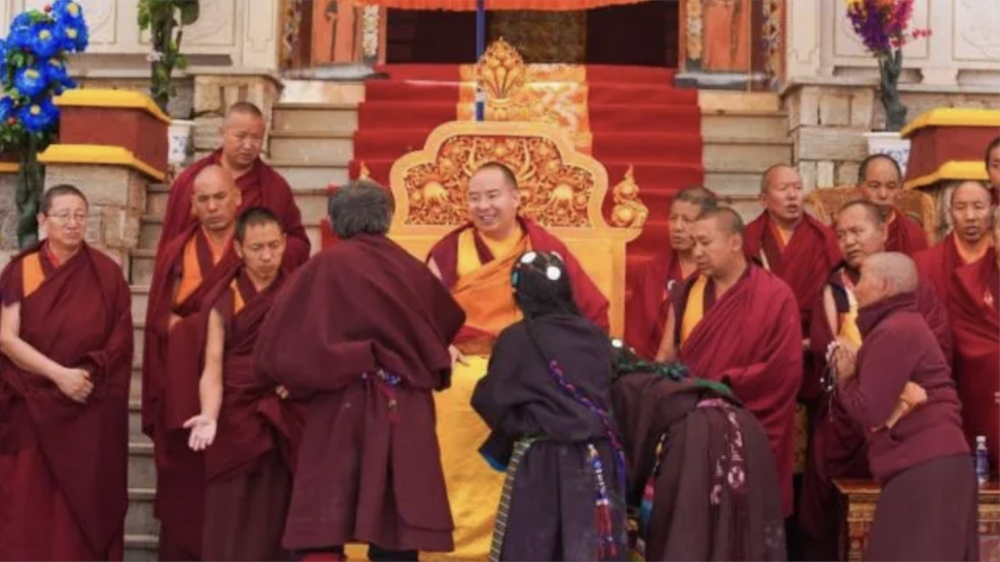China's Panchen Lama Visit Raises Concerns Over Nepal’s Geopolitical Neutrality

Lumbini, Nepal – The upcoming visit of Gyaltsen Norbu, the Chinese-appointed 11th Panchen Lama, has raised questions about Nepal’s geopolitical positioning and its role in Beijing’s broader regional strategies. Norbu is set to attend the 9th South China Sea Buddhism Roundtable Conference in Lumbini from December 12 to 17, with his visit to Nepal scheduled from December 14 to 17.
The event, hosted in the birthplace of Lord Buddha, is part of China’s effort to extend its influence over Buddhist communities in South Asia. By holding this high-profile conference in Nepal, Beijing appears to be leveraging cultural and religious diplomacy to reinforce its soft power. Analysts warn that this could challenge Nepal’s traditionally neutral stance in regional politics, particularly as India and China vie for influence in the Himalayan nation.
Implications for Nepal
The visit places Nepal in a sensitive position. While Nepal maintains strong economic ties with China, it also shares historical and cultural affinities with India, particularly in Buddhism. Hosting a figure as politically controversial as Norbu risks alienating Tibetan communities and drawing criticism from international human rights groups.
Moreover, Nepal’s participation in events linked to China’s South China Sea strategy could be interpreted as aligning with Beijing’s geopolitical ambitions, potentially straining relations with India and other stakeholders in the region. Nepal has previously been cautious about being drawn into disputes between its two powerful neighbors, but this visit could test that balance.
Background on the Panchen Lama
Gyaltsen Norbu’s appointment as the 11th Panchen Lama in 1995 by the Chinese government has been controversial. The Dalai Lama had earlier recognized Gedhun Choekyi Nyima as the rightful Panchen Lama, but the Chinese government rejected this decision, detaining Gedhun Choekyi Nyima, who has not been seen since. Norbu’s role is widely regarded as a political tool to undermine the Dalai Lama’s authority and legitimize Beijing’s control over Tibetan Buddhism.
Despite China’s efforts to promote Norbu, he has failed to gain widespread acceptance among Tibetan communities, who regard him as a government-appointed figure lacking religious legitimacy.
The South China Sea Buddhism Roundtable
The South China Sea Buddhism Roundtable, initiated by Chinese Buddhist leaders, serves as a platform to promote collaboration among Buddhist communities while advancing Beijing’s regional interests. This year’s choice of Lumbini, a UNESCO World Heritage Site and the birthplace of Lord Buddha, underscores China’s attempt to position itself as a leader in the global Buddhist community.
For Nepal, the event’s location is significant. While it highlights the country’s cultural and religious heritage, it also places Nepal at the center of China’s soft power push, raising questions about the implications for Nepal’s diplomatic and cultural autonomy.
Nepal’s Balancing Act
As Nepal hosts this high-profile conference and welcomes Norbu, it faces increasing scrutiny over its ability to maintain a neutral stance in the face of growing Chinese influence. While the event showcases Nepal’s Buddhist heritage on the global stage, it also underscores the complexities of managing its relationships with both India and China amid their competing interests in the region.
Fake Panchen Lama




![From Kathmandu to the World: How Excel Students Are Winning Big [Admission Open]](https://nepalaaja.com/index.php/img/70194/medium/excel-college-info-eng-nep-2342.jpg)


